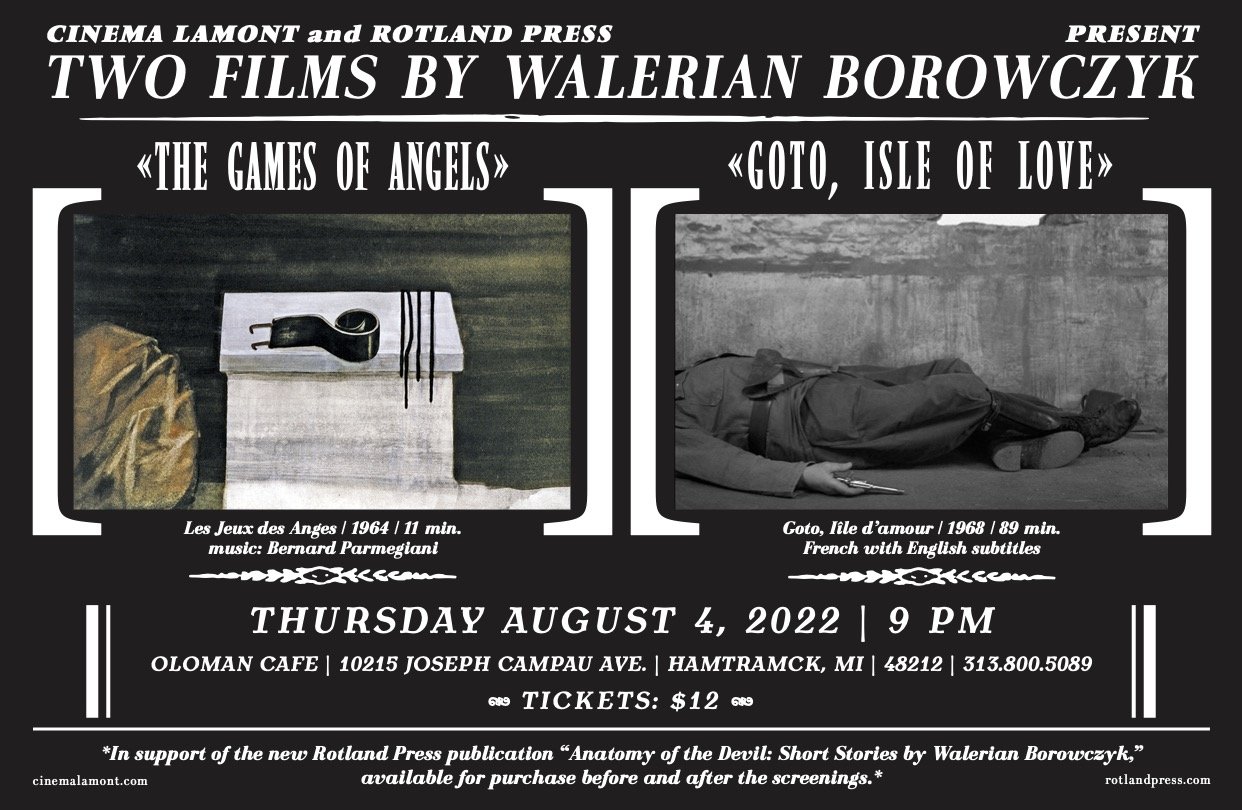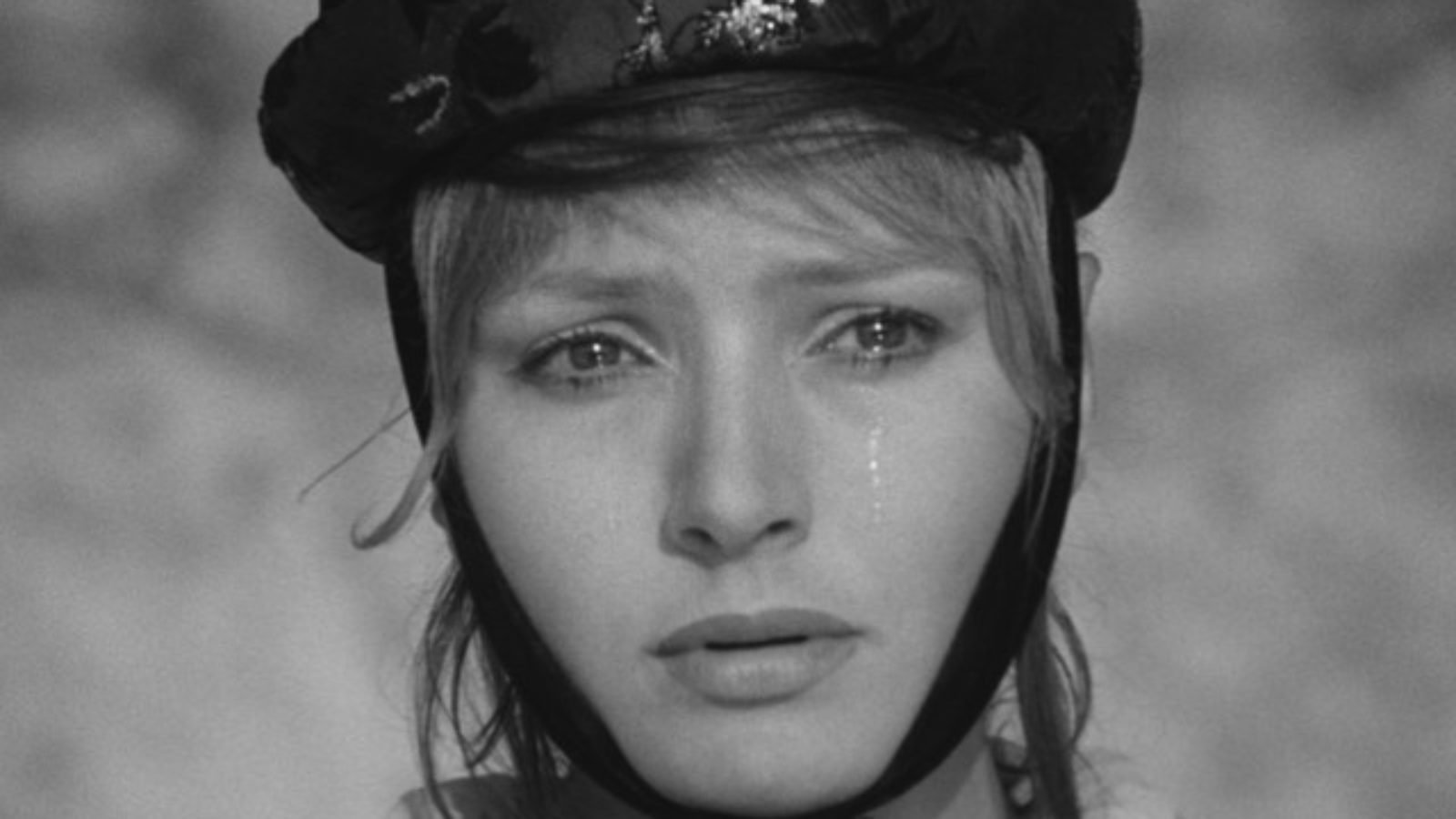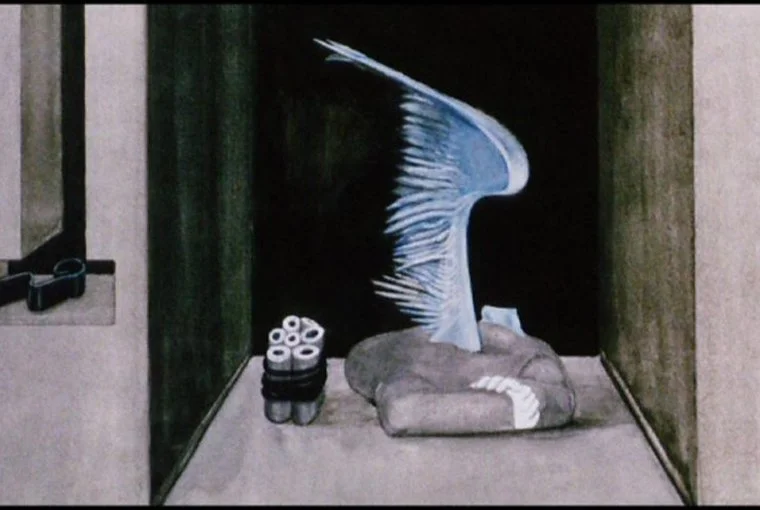Cinema Lamont & Rotland Press Present
Two Films by Walerian Borowczyk
In support of the new Rotland Press publication “Anatomy of the Devil: Short Stories by Walerian Borowczyk,” available for purchase before and after the screenings.
Goto, l’île d’amour / Goto, Isle of Love
1968, 89 min, colour & b&w, French
Grozo (Guy Saint-Jean), a petty thief works his way up the absurd hierarchy of Goto, an archipelago cut off from civilization by a tumultuous earthquake. Amongst his menial tasks are cleaning the governor’s boots, attending to the dogs and catching flies. What keeps him going is the dream of possessing Glossia (Ligia Branice-Borowczyk), a stifled beauty trapped in a loveless marriage to the melancholic dictator (Pierre Brasseur). Stunningly designed, Goto, Island of Love is a film in which bizarre props, atmospheric sets and (most importantly) animals, are given as much weight on screen as the human actors. Banned in Communist Poland and Franco’s Spain, Goto, Isle of Love is arguably Borowczyk’s most original film. Features surrealistic sights, poetic flashes of color and the stunning use of Handel’s organ concerto.
Preceded by:
Les jeux des anges / The Games of Angels
1964, 11 min, color, no dialogue
Arguably Borowczyk’s masterpiece, The Game of the Angels is, according to the director, a reportage in the city of angels. Based on a series of abstract, metaphysical gouaches that evoke Giorgio de Chirico and René Magritte but which could only have come from Borowczyk, The Game of the Angels evokes the horror of what Czesław Miłosz described as the concentration universe of both death camps and the Gulag. These unforgettable images combined with an astonishing soundtrack by Bernard Parmegiani, results in The Game of the Angels being one of the most affecting films in the history of cinema.
Walerian Borowczyk was born in Kwilcz, a village in Western Poland, on October 21, 1923. Between 1946 and 1951, he studied painting and sculpture at the Krakow Academy of Fine Arts. During the early 1950s, Borowczyk moved to Warsaw where he established himself as a designer of film posters.
In 1957, together with another poster artist, Jan Lenica, he directed his first professional short film, Once Upon a Time. The following year, Borowczyk emigrated to France. During the early 1960s, he produced short films and commercials. He made his feature film debut in 1967, with Theatre of Mr and Mrs Kabal. During the early 1970s, directed Immoral Tales, a portmanteau film concerning sexual themes which brought his work to the attention of a wider audience.
Throughout the 1970s and 1980s, Borowczyk developed a startling body of work in a variety of genres: short films, features, documentaries and animation. In addition to designing the sets and editing many of his films, Borowczyk also created the props and designed posters. During the 1990s, Borowczyk returned to graphic work, invented a technique called “pulverography” and also authored a number of books, including a collection of short stories, Anatomy of the Devil (L’Anatomie du Diable), and a book for children, Dumb Animals (Les bêtes sont-elles bêtes ?). He died in Marly-le-Roi, near Paris, on February 3, 2006, aged 82.
Founded in 2010, Rotland Press is a small publishing house in Detroit, Michigan, USA. It is a publisher of printed projects that mingle mordant amusement with enthusiastic despair. Ryan Standfest is the publisher and editor-in-chief.



